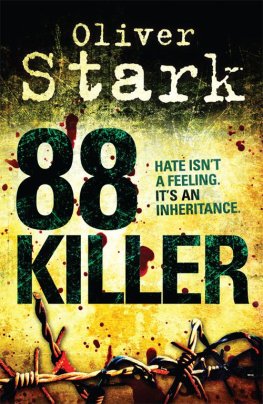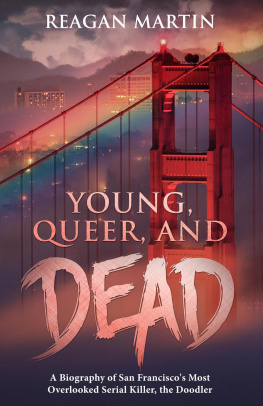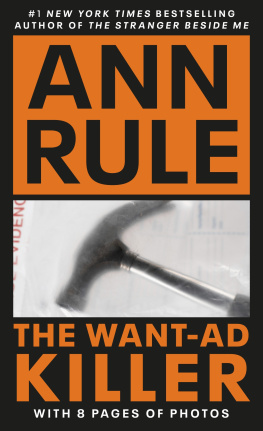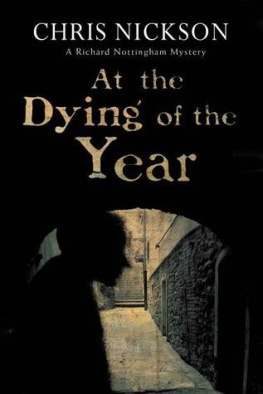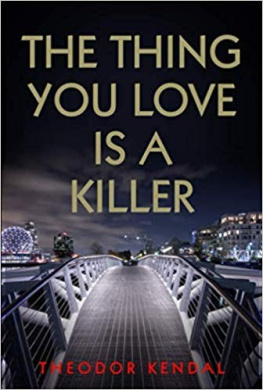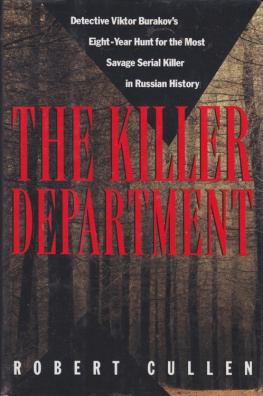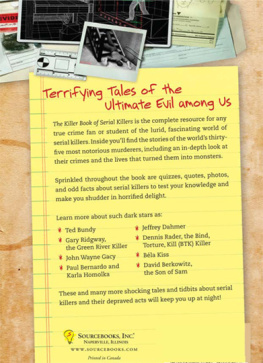
Contents
To Karyn,
for just about everything
HE IS AWAKE AGAIN, with no idea what time it may be, or whether, really, he has slept at all. He sleeps poorly these days. Strange, too, how times become a blur. At first theres no reason to know the time of day, then days themselves give way, finally years. Till only the change of seasons marks another passage, another decline. To remember, he has to think back to where he lived, what rented room or cheap apartment in Gary, Gretna, Memphis, Seattle.
There are no streetlights in this part of the city. These are reserved for kinder, gentler regions to the north and east. Here, it is about as dark as dark gets. Light from the billboard across the street, its legend in Spanish and advertising the latest luxury vehicle, enters the room at a slant. It does little more, he thinks, than blur the darkness.
Periodically he lifts one hand, the left, into that light, closes his fingers to a fist and opens them again, watching the play of muscle, tendons, and scars. As the hand opens, it begins to shake. Thats the drugs. The drugs make him shake. But without the drugs he shakes more. The drugs make him stupid, tooand he cant afford to be stupid.
He hears two people shouting at one another outside, on the balcony the next floor up, from the sound of it.
Its my fucking money!
And its my fucking car!
Then the rimshot of someone getting slammed against a wall or door.
A radio or TV in the next room drones on as it has for the four days he has been here. Its tuned to talk shows, words indistinguishable, only the cadence and inflection changing with hosts, callers or guests, commercial announcements. From time to time another voice, that of the rooms occupant, joins in, as though in conversation.
He gets up and, feet swollen, pads to the bathroom. A cockroach that had been drinking from the bowl flows up the side of the sink and vanishes over the edge when the light goes on. With a razorblade he splits one of the pills in half. They stop the shaking, for a time. An hour, two. And while they dont help the pain, they do cause the world to go soft in interesting ways. Walls curve outward, corners and angles retreat, everything slows. As though transparent panes have gone up between himself and all else.
While there he fills and drinks from the glass that, hating the smell and taste of plastic, he carries with him from place to place. The pills leave him permanently cotton-mouthed.
In T-shirt and boxers, he steps out onto the walkway. The clamor from the balcony above has subsided. He realizes that he had almost forgotten where he is, but now the far-off lights, low buildings, and sprawl of dark sky remind him. Out on the street, past the cracked black asphalt of a parking lot that looks like lava flow, a lowrider cruises by at fifteen miles an hour. Its a Ford Galaxie from the fifties, tricked out with spinners for caps and painted all over with bright-colored dragons and iridescent, half-naked women. In the distance he hears what have to be gunshots from a large-bore handgun. The shots are clean, distinct, clearly separated. From that direction, within moments, a siren cries, then abruptly cuts off.
There is another sound, though. In the eaves of this low-end, by-the-week motel, in an angled joist just beneath the lip, a pigeon has built its nest, from which one of the nestlings has fallen. Frantic and helpless, the parent looks down, twisting its head and blinking, as the chick tries to get to its feet, flutters stubby wings, and chirps so softly it is barely audible.
He stands watching a long while before he turns and goes inside.
Someone in the next room, or someone on the radio, someone on TV, is weeping.
ITS HIS THIRD DAY HERE, and he sees in the waitresss eyes that she remembers him. For what he is about, this is the best location, but now hell have to change.
The man he is watching always arrives within five minutes either side of nine. He parks his year-old Hyundai by one of the skimpy palo verde trees at the rear of the lot. Lunch, he takes at the restaurant half a block away, Home Cooking and Daily Specials painted in block yellow letters on the front window. Periodically his head and shoulders may be seen in one of the second-story windows. He is among neither the first nor the last to leave.
How this man could possibly be of such concern as to bring someone to engage his services, Christian cant imaginea nondescript office-dweller at a nondescript accounting firm in a featureless city where everything is dun-colored.
None of that is any concern of his. Interesting, though, that he thinks it.
The client has asked that it be clean, without the possibility of connection, clue, or trace, no indication of professional work, nothing to suggest that it might be anything other than one of the random deaths occurring hourly in cities: drug deals or muggings gone sour, ramped-up lovers quarrels, gang initiations, drive-bys.
Two tables over, a couple is having what his girlfriend back in college called The Talk. Their voices are quiet, their physical interchanges limited to gestures, eyes, and a gamelike shuffling of objects (spoons, glass bin of sweetener, water glass, coffee cups) on the tabletop, but the substance of their discourse is identical to that on the balcony last evening.
Every human interaction, even the most unremarkable, is an economic exchange, he thinks: each side wants something. And it still amazes him how much anger is in people. You see it always in their eyes, in the pitch of voices kept low, in the way they pass through doors or down hallways. So many of them are like jars, forever filling.
He finishes his coffee, toast, and oatmeal and leaves a small tip, pays at the register where the cashier and the other waitress are talking about classic TV shows.
On the street a well-appointed homeless man starts toward him, then, with a closer look at his face, something seen there, turns away. Christian steps after him, reaching for his wallet even as he does, but thinks better of it. Too much already, that the waitress remembers him.
There is a small park up the street, just a clump of trees and a bench at streets edge, really, but somehow in this strange place its even earned a name, Willamette Park, and for two days hes passed an hour or so there following breakfast. He is of an age that no one thinks it amiss for him to be dawdling unoccupied at nine in the morning; with his open-necked shirt, loose khaki pants, and polyester sports jacket, he could easily be a retiree from any of the dozen apartment complexes set in the interlocking streets back off the thoroughfare here. He has not read a newspaper in years, but carries one.
There are pigeon droppings like tides of dried chalk on the bench, so he removes a section from the paper and sits on that. Its because they have no sphincters, he thinks. Birds have no sphincters, giraffes have no voice, dogs see only black and white. So little difference, finally, between an adaptive characteristic and a liability. We all make do. We find ways around.
He cannot see as well from here, but the building with the man he is watching, the building with the name Brell set into a fan of bricks above the entryway, remains in his line of sight.
He remembers one of his favorites, the show about cephalopods. Fish were disappearing from tanks in a marine lab. They couldnt figure out what was going on, all these brilliant scientists. The lab was locked, and no one came in at night. The tanks were covered save for a narrow space at the top. Finally they set up cameras, caught it on film. Each night the octopus had been heaving itself out of its tank, crossing dry countertop, and pushing its body through the impossibly narrow opening to treat itself to a midnight buffet from a neighboring tank.
Next page
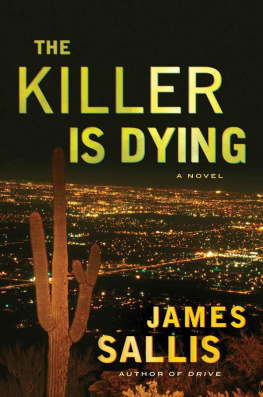
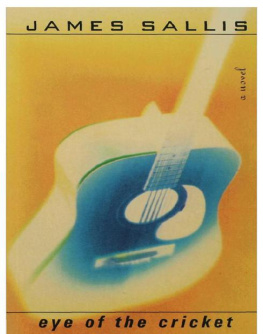
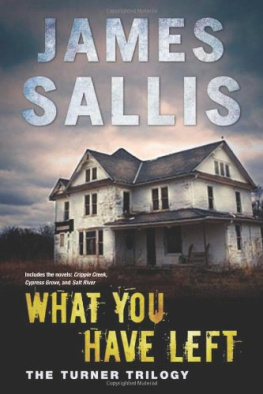
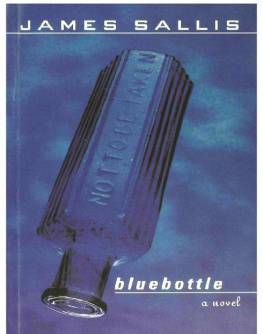
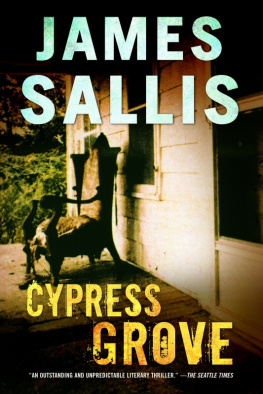
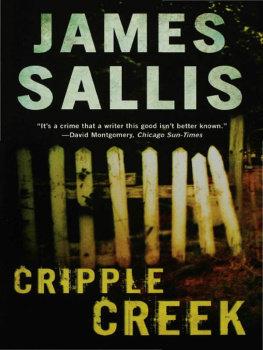
![Maks Kollinz - Dying in the Post-War World [novella]](/uploads/posts/book/911250/thumbs/maks-kollinz-dying-in-the-post-war-world-novella.jpg)

